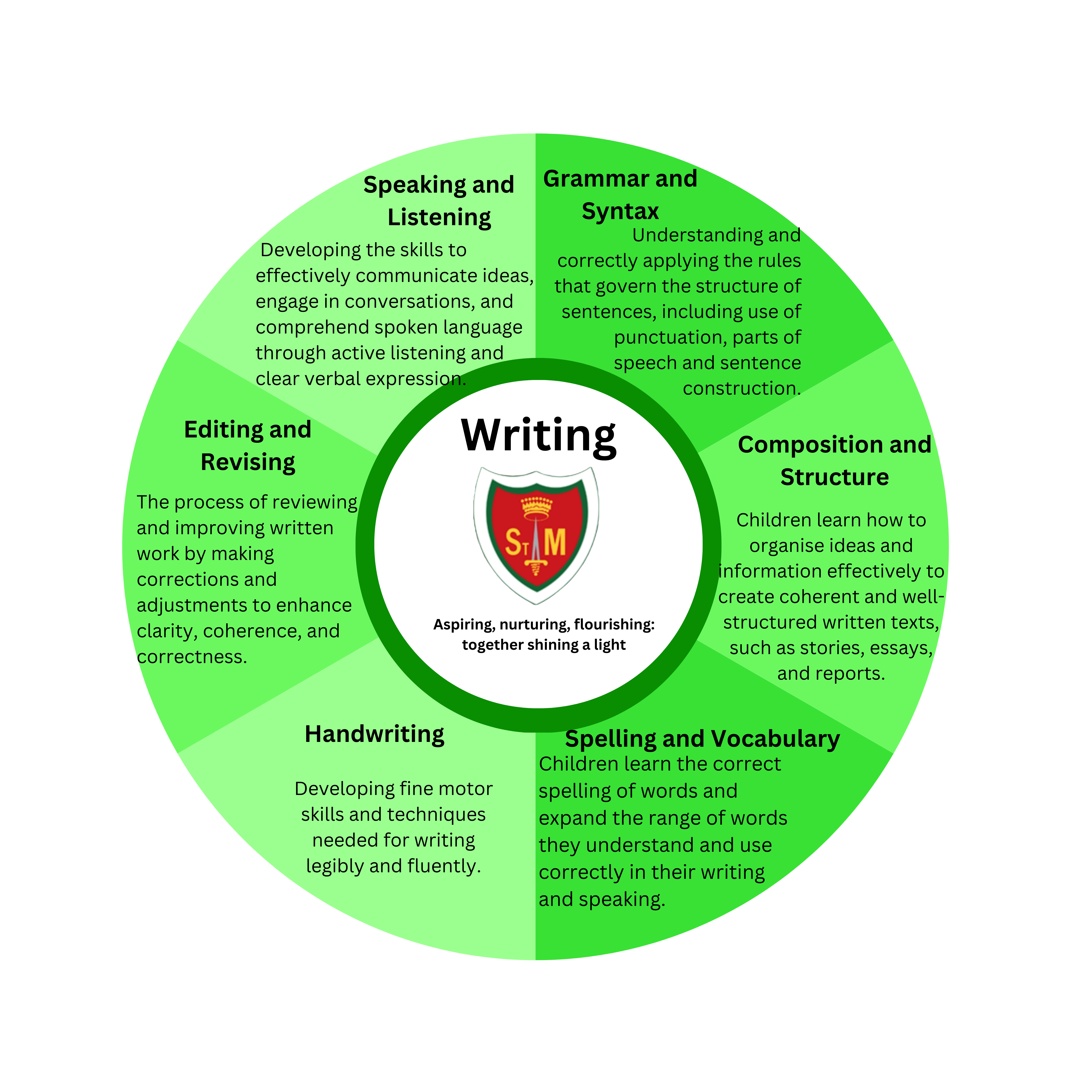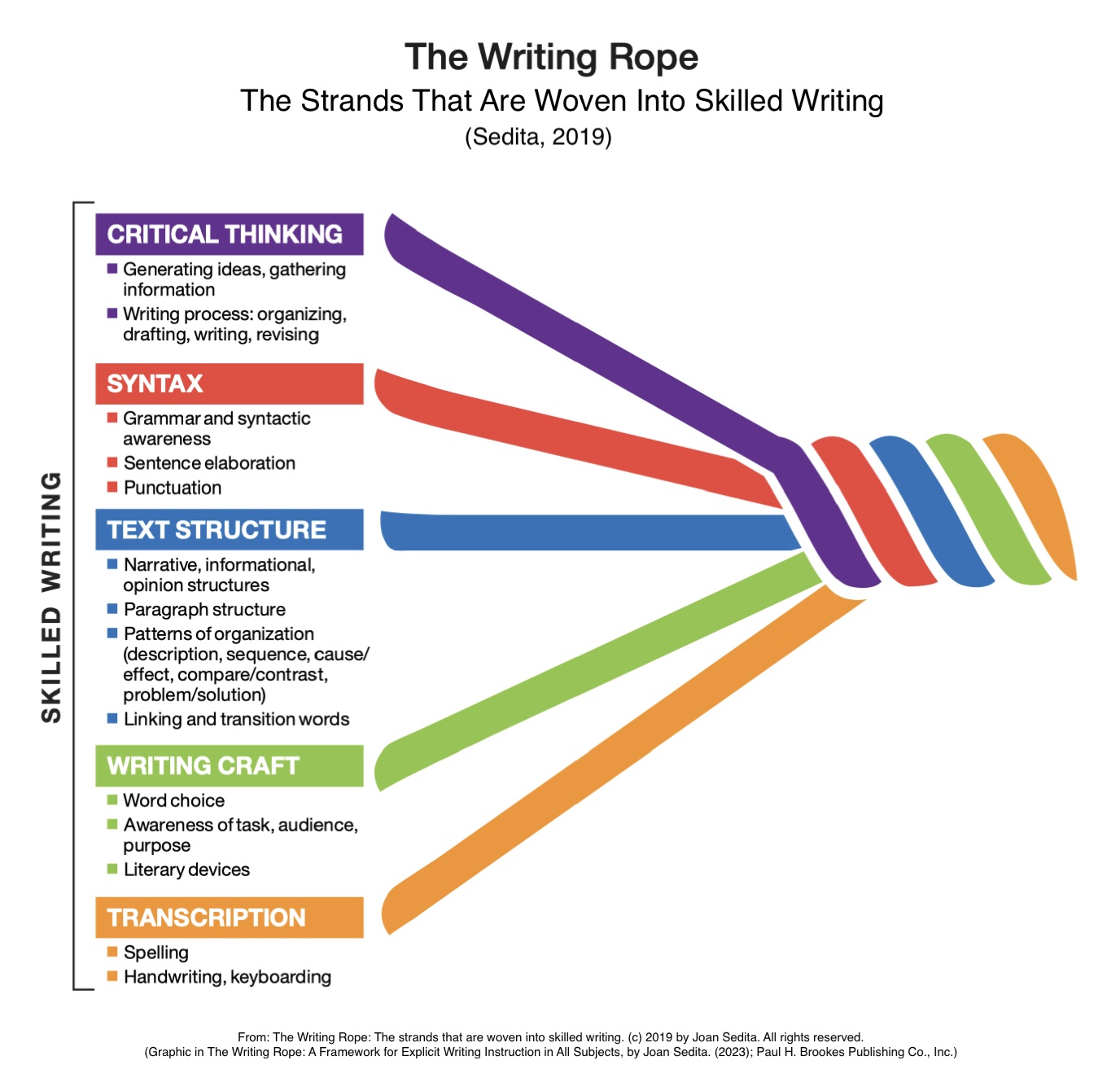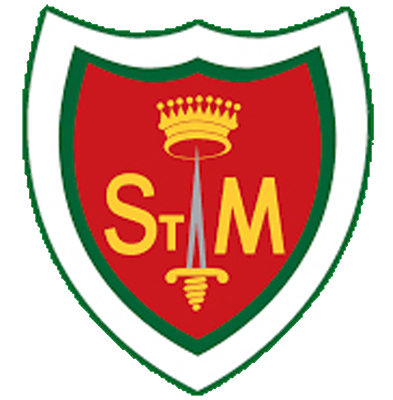Writing

Intent
At St. Mary’s Primary School, we endeavour to create a love for writing. We want every child to leave St. Mary’s with the skills of an excellent writer who:
· Has the ability to write with fluency and has an author’s voice;
· Thinks about the impact they want their writing to have on the reader and knows how they will achieve this;
· Has a sophisticated bank of vocabulary and an excellent knowledge of writing techniques to extend details or description;
· Can structure and organise their writing to suit the genre they are writing and include a variety of sentence structures;
· Displays excellent transcription skills that ensure their writing is well presented, punctuated, spelled correctly and legible;
· Re-reads, edits and improves their writing so every piece of writing they produce is to the best of their ability and better than the last.
Throughout their time at St. Mary’s, children develop their skills by exploring a whole range of different genres, with a focus on exploring a range of models of excellence and using these to guide the drafting and editing process. It is important to note that we not only develop a real enjoyment of writing in English lessons but in all subjects across the curriculum.

Implementation

At St. Mary’s, the implementation of the writing curriculum is grounded in a structured and progressive approach that nurtures confident, capable, and imaginative writers. Our teaching of writing is underpinned by The Writing Rope (Joan Sedita), which recognises the interweaving of multiple strands—such as sentence structure, text structure, transcription, vocabulary, and critical thinking—to build strong, fluent writers.
Writing units are carefully sequenced to ensure progression across year groups and to build upon prior learning. Each unit focuses on a specific text type and provides children with the opportunity to secure and revisit key sentence structures. From early writing in EYFS through to complex compositions in upper Key Stage 2, grammar and syntax are taught explicitly and in context.
Children are immersed in a variety of high-quality and diverse texts that act as models for writing. These model texts exemplify the language features, structure, and tone appropriate to each genre, helping pupils internalise what effective writing sounds and looks like. Reading and writing are closely connected throughout each unit.
Every writing unit follows a clear structure: immersion, skills focus, planning, drafting, revising, editing, and publishing. This ensures that pupils understand the writing process as cyclical. Regular and purposeful writing opportunities across the curriculum enable children to practise and apply their skills in meaningful contexts.
Rich vocabulary is at the heart of our writing curriculum. New and ambitious words are introduced through reading, discussion, and explicit teaching, then applied in writing. Vocabulary is built cumulatively and revisited often to promote deep understanding and effective usage.
Feedback is timely, specific, and focused on both the strengths and next steps in a child’s writing. Opportunities for editing and revising are planned into every unit, helping children understand that great writing is crafted over time. Pupils are encouraged to reflect on teacher, peer, and self-assessment to make meaningful improvements.
By combining engaging content with a rigorous focus on the technical aspects of writing, our curriculum equips children with the tools they need to communicate clearly, confidently, and creatively.
Impact
At the heart of our approach is a strong culture of feedback, reflection, and collaboration, where every child feels supported, valued, and inspired to improve.
Feedback is a powerful driver of progress. Through timely and constructive teacher, peer, and self-assessment, children develop a clear understanding of their strengths and next steps. Editing and redrafting are built into every unit, helping pupils to view writing as a process of refinement and craft. Children are encouraged to respond to feedback with purpose, taking pride in improving their work.
We believe in ‘shining a light together’—creating a community of writers who support and learn from one another. Children regularly share their work with peers, discussing ideas, structure, and vocabulary choices. Through paired and group work, they build the skills to offer and receive meaningful feedback. Pupil voice is used to evaluate units, influence future planning, and ensure the writing curriculum remains relevant, engaging, and inclusive.
Every writing unit concludes with a ‘published’ piece—an opportunity for children to take ownership and pride in their final product. Published work reflects the progress children have made through careful drafting, feedback, and editing. This celebration of writing reinforces the value of their efforts and raises expectations of what they can achieve. This writing is used to assess each child’s progress and attainment half-termly.
Together, we shine a light on every child’s voice—developing writers who are equipped to express themselves with clarity, purpose, and imagination.
